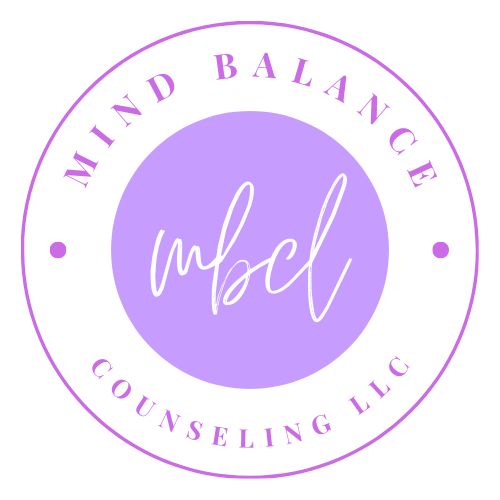Tele-health Services
In-person and Online Counseling In Florida, and Online Only Michigan and Washington State at Mind Balance
Tailored Solutions for Individuals, Couples, and EMDR Healing
Get a FREE consultation today.
Exploring Counseling Topics with Rana Abbas
Depression is a complex mental health condition with various potential causes and different types. It’s important to note that individuals may experience depression differently, and a combination of factors often contributes to its development.
For this It’s crucial to seek professional help if you or someone you know is experiencing symptoms of depression. Mrs. Rana Abbas can provide a thorough assessment and develop a treatment plan tailored to individual needs. Treatment may include therapy, medication, lifestyle changes, or a combination of these approaches.
Anxiety is a natural response to stress or a perceived threat. It is a complex emotion characterized by feelings of apprehension, worry, fear, or uneasiness. While it’s normal to experience anxiety in certain situations, such as before a big presentation or during a challenging life event, it becomes a concern when it is excessive, persistent, and interferes with daily life. There are various types of anxiety disorders, including generalized anxiety disorder (GAD), social anxiety disorder, panic disorder, and specific phobias. Treatment for anxiety may involve psychotherapy (counseling), medication, lifestyle changes, and coping strategies. Cognitive-behavioral therapy (CBT) is a commonly used therapeutic approach for managing anxiety, helping individuals identify and change negative thought patterns and behaviors.
Personality disorders are a class of mental health conditions characterized by enduring patterns of behavior, cognition, and inner experience that deviate markedly from the expectations of the individual’s culture. These patterns often lead to distress or impairment in social, occupational, or other important areas of functioning. There are several types of personality disorders like Paranoid personality disorder, antisocial personality disorder borderline personality disorder, narcissistic personality disorder, schizoid personality disorder, avoidant personality disorder, dependent personality disorder and obsessive-compulsive personality disorder. Treatment for personality disorders often involves a combination of psychotherapy, medications, and support. It’s important to note that individuals with personality disorders may not always seek treatment willingly, as they may not recognize the impact of their behavior on themselves or others
Bipolar disorder, formerly known as manic depression, is a mental health condition characterized by extreme mood swings or episodes of mania and depression. People with bipolar disorder experience periods of intense emotional highs (mania or hypomania) and lows (depression). These mood episodes can last for days, weeks, or even months.
There are three main types of bipolar disorder.
Bipolar I disorder: Individuals with Bipolar I experience manic episodes that last for at least seven days or are severe enough to require hospitalization. Depressive episodes may also occur, typically lasting for at least two weeks.
Bipolar II disorder: This type involves a pattern of depressive episodes and hypomanic episodes, which are less severe than full-blown manic episodes. Individuals with Bipolar II never experience full mania.
Cyclothymic Disorder (Cyclothymia): Cyclothymia is a milder form of bipolar disorder characterized by numerous periods of hypomanic symptoms and depressive symptoms that do not meet the criteria for a major depressive episode. The symptoms persist for at least two years in adults and one year in children and adolescents.
Treatment for bipolar disorder typically involves a combination of medication, psychotherapy, such as cognitive-behavioral therapy (CBT) or interpersonal therapy can help individuals cope with the challenges of the disorder and improve their overall well-being. It’s important for individuals with bipolar disorder to work closely with mental health professionals to develop a comprehensive treatment plan and receive ongoing support. With proper treatment and management, many people with bipolar disorder can lead fulfilling and productive lives.
Trauma refers to a deeply distressing or disturbing experience that can have lasting psychological and emotional effects on an individual. It often overwhelms a person’s ability to cope and may leave a lasting imprint on their mental and emotional well-being. Trauma can result from a single event or a series of events, and it can manifest in various forms like physical, sexual, emotional, childhood or complex trauma.
It’s important to recognize that trauma recovery often requires professional support. EMDR has been proven the best approach to deal with trauma and help individual to recover.
If you, your friend or any family member is struggling with trauma you can reach to us and request an appointment.
Post-Traumatic Stress Disorder (PTSD) is a mental health condition that can develop in individuals who have experienced or witnessed a traumatic event. PTSD can occur after exposure to a range of traumatic events such as military combat, natural disasters, serious accidents, physical or sexual assault, and other life-threatening events. Seeking professional help is crucial for individuals with PTSD. Effective treatment can significantly reduce symptoms and improve overall quality of life. If you or someone you know is experiencing symptoms of PTSD, it’s important to reach out to us.
Anger management refers to a set of techniques and strategies will be provided by the therapist to help individuals control and express their anger in a healthy and constructive way. Anger is a natural and normal emotion, but when it is not managed effectively, it can lead to problems in various aspects of life, including relationships, work, and overall well-being.
ADHD stands for Attention-Deficit/Hyperactivity Disorder. It is a neurodevelopmental disorder that commonly begins in childhood but can persist into adolescence and adulthood. ADHD is characterized by persistent patterns of inattention, hyperactivity, and impulsivity that can impact various aspects of an individual’s life, including academic performance, work, and relationships.
The core symptoms of ADHD are typically classified into two main categories:
1-Inattention:
- Difficulty sustaining attention in tasks or play activities.
- Easily distracted by unrelated stimuli.
- Forgetfulness in daily activities
- Difficulty organizing tasks.
2-Hyperactivity and impulsivity:
- Restlessness or fidgeting
- Excessive talking
- Difficulty waiting one’s turn.
- Impulsive decision-making.
Treatment of ADHD:
- Behavioral therapy
- Educational support
- Lifestyle and environmental manifestations.
- Parents and family support
- Medication.
Cultural adjustment refers to the process of adapting to a new cultural environment. When individuals move or travel to a different culture, they often experience a period of transition and adaptation as they learn to navigate the social norms, values, customs, and behaviors of the new culture. This process can be challenging, but therapy will help the individual to make this process smooth.
Relationship issues are common and can arise in various forms, whether in romantic partnerships, family relationships, friendships, or professional connections. Addressing relationship challenges requires effective communication, empathy, and sometimes, the assistance of a mental health professional. Here are some common relationship issues and suggestions on how to navigate them.
It’s important to note that addressing relationship issues often requires both parties to be willing to work on the problems collaboratively. If issues persist or become overwhelming, seeking the help of a couple’s therapist or a mental health professional can provide additional support and guidance. Couples therapy can offer a safe space to explore and address underlying issues and develop healthier patterns of communication and interaction.
Navigating Paths to Wellness
Tailored Counseling Services
Couple Therapy
Individual Therapy
Family Therapy
EMDR
About Me
I’m Rana Abbas, Licensed Professional Counselor.
I Guide Individuals to Achieve Emotional Wellness.

Testimonials
What Clients Are Saying

Daniel Johnson

Julia Michele

Robert Green

Oliver Goodman

